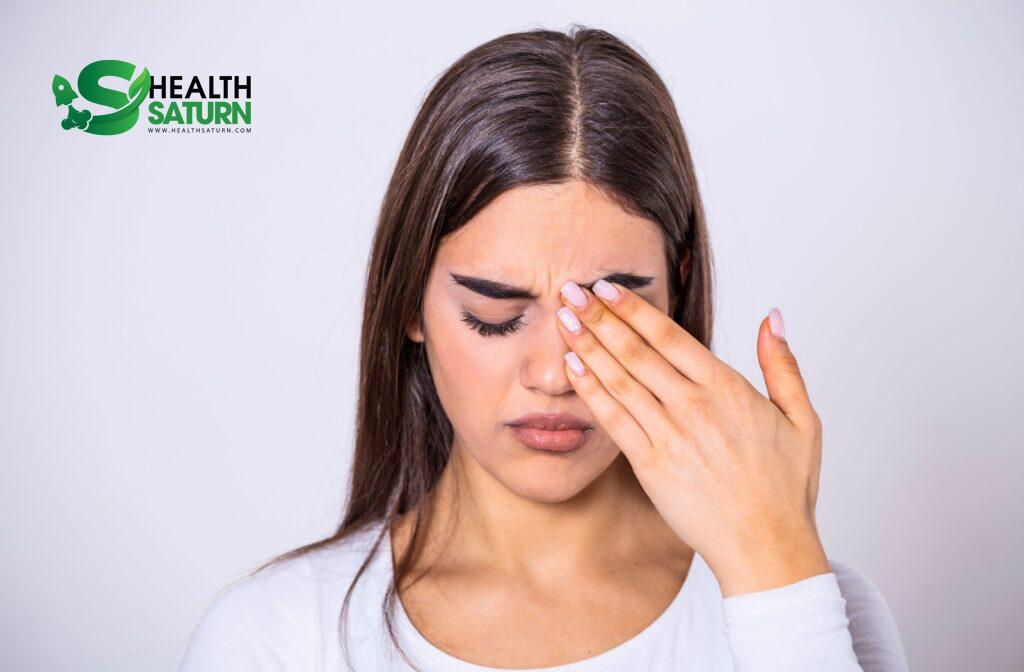If you often find yourself rubbing your eyes, it’s time to pay attention.
Rubbing your eyes can become a natural habit, whether in the morning or during long hours at a computer screen.
“It’s super common,” says Jill Beyer, OD, an assistant clinical professor of ophthalmology at Stanford University School of Medicine. “I’m sure everyone has felt the urge to rub their eyes at some point.”
Rubbing stimulates tears, which can help lubricate the eyes, explains Beyer. It can also be satisfying as it temporarily numbs some sensations in the eyes.
However, frequent eye rubbing is generally discouraged by eye health professionals. It puts unnecessary pressure on the eyes, and in some cases, can even lead to serious conditions like keratoconus, says Masako Chen, MD, an assistant professor of ophthalmology and director of the Comprehensive Eye Clinic at Mount Sinai’s New York Eye and Ear Infirmary.
“I honestly think nobody should rub their eyes. Instead, using artificial tears for itching would prevent many doctor visits,” adds Chen.
Here’s why people tend to rub their eyes, why it can be harmful, and when you should see a healthcare professional.
Why Do People Rub Their Eyes Frequently?
Anyone can feel compelled to rub their eyes, but some conditions may increase the urge.
Allergies are a major trigger for eye rubbing. Seasonal allergies or allergic conjunctivitis often cause itching, burning, and clear discharge, leading people to rub their eyes.
Other conditions, like blepharitis (eyelid inflammation) or viral conjunctivitis (pink eye), can also cause frequent eye rubbing. Dry eye is another common culprit, says Clark Chang, OD, director of global medical affairs with Glaukos and director of specialty lenses at Wills Eye Hospital.
“Our constant screen time reduces blinking, which causes tear film to evaporate,” says Chang. Dry eye is being diagnosed more frequently and makes people more likely to rub their eyes.
Eye fatigue or eye strain from screen use can also contribute, Beyer adds. And for some, rubbing their eyes has simply become a habit.
How Rubbing Your Eyes Can Worsen Problems
In most cases, rubbing your eyes causes more harm than good.
For those with allergies, rubbing releases more histamines, making the itching worse, says Beyer.
Eye injuries can also occur. Excessive rubbing can injure the cornea, and if there’s a foreign object in the eye, rubbing can make things worse, explains Chen.
“If something like dust gets in your eye and you rub it, you could end up with an abrasion, which is very painful,” she notes.
In more severe cases, rubbing can increase eye pressure, which can thin and warp the cornea over time. This could damage collagen fibers and other proteins in the eye, Chang explains.
In some people, these changes may lead to keratoconus—a condition where the cornea bulges outwards. This is more common among younger people and can be serious, says Chang. In advanced cases, patients may even need a corneal transplant, Chen adds.
While eye rubbing isn’t the only cause of keratoconus, it is one potential factor. For those with keratoconus, rubbing only makes the condition worse.
Breaking the Habit
Even if you haven’t developed keratoconus, experts agree it’s best to avoid rubbing your eyes.
“If possible, it’s better not to rub your eyes, though I know it can be difficult,” says Beyer.
Instead of rubbing, use artificial tears for dryness, Beyer suggests. For those rubbing their eyes due to screen-related fatigue, she recommends the 20-20-20 rule—every 20 minutes, look at something 20 feet away for 20 seconds.
“We’re all glued to screens, so almost everyone deals with ocular fatigue or dry eyes. Rubbing may feel good briefly, but it can make problems worse,” she says.
If you find it hard to stop rubbing your eyes or experience symptoms like blurry vision, eye sensitivity, redness, or pain, it’s time to consult an eye doctor, says Chen.
An eye professional can help identify the underlying issue, whether it’s dry eye, allergies, keratoconus, or another condition.
“If you’re unsure why you keep rubbing your eyes, I highly recommend seeing an eye doctor,” advises Chang.


